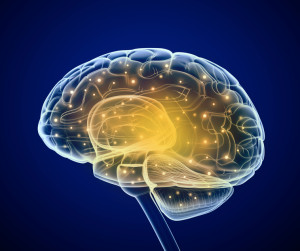
Can Cocaine, Alcohol, Other Addictions Be Treated with Ketamine?
Intranasal esketamine was approved in March 2019 by the FDA for the treatment of treatment-resistant depression (TRD) in adults. The FDA-approved ketamine-like drug is called esketamine. It is one version of the ketamine molecule.
Eskeamine works like intravenous ketamine but with fewer side effects. Its chemical makeup allows it to bind more tightly to the NMDA glutamate receptors, making it up to five times more potent. This means that patients need a lower dose of esketamine than they do ketamine.
The FDA approved nasal spray allows the drug to be administered by a Psychiatrist, and the patient monitored for 2 hours. Side effects, including dizziness, a rise in blood pressure, and feelings of detachment or disconnection from reality.
Intranasal administration[1] and also Ketamine infusions[2] have been used in treatment-resistant depression[3] though several experts[4] in TRD have suggested caution[5]. Addiction researchers and treatment specialists have been cautious, but some of the patient’s problems were difficult, if not impossible, for them to treat with the tools available.
Cocaine
Cocaine use rates have increased but not as much as having coca production[6] and massive cocaine seizures by law enforcement[7]. The estimated global prevalence of cocaine use was 0·4%, and amphetamine use was 0·7%, with dependence affecting 16% of people who used cocaine and 11% of those who used amphetamine[8].
 Over 5.5 million people aged 12 or older are past year users of cocaine, according to SAMSHA. These 5.5 million users include many with cocaine use disorders, including about 757,000 users of crack. 2.2% of high school seniors report using cocaine in the past year as part of Monitoring the Future study.
Over 5.5 million people aged 12 or older are past year users of cocaine, according to SAMSHA. These 5.5 million users include many with cocaine use disorders, including about 757,000 users of crack. 2.2% of high school seniors report using cocaine in the past year as part of Monitoring the Future study.
Cocaine deaths have increased and rival opioid deaths in some States. At least 10,000 people died from an overdose involving psychostimulants in the USA in 2017, marking a 37 percent increase from 2016[9].
The number of cocaine overdose deaths declined from 2006 to 2012 but then began rising again, according to the Centers for Disease Control and Prevention. In 2017, cocaine overdose deaths increased by more than 34 percent, to about 14,000 people dying from cocaine overdoses[10].
Cocaine use and use disorders appear to be making a comeback in the United States[11]. Price has decreased, and frequent use and death reports have increased. Opioid users are using cocaine as well.[12]
Stimulant use is associated with elevated mortality, cerebrovascular disease, chest pain, and significant cardiovascular events, HIV and hepatitis C infection, suicidality, psychosis, depression, and violence. Cocaine and other psychostimulant use and epidemics follow opioid epidemics by Musto and others[13].
With the notable exception of contingency management and physician health program models of care, treatment for cocaine dependence is painful, and relapse is common. Occasional users have problems that require medical treatment as do binge or continuous users.
Both groups have overdosed, cardiovascular, infectious, psychiatric, and cerebrovascular events that have caused over half of the accidental drug overdose deaths in New York City[14], for example, to include cocaine.
No effective pharmacotherapies are available that reduce cocaine or stimulant use, and the available psychosocial interventions (except for contingency management) have not been very successful. Necessary science studies in rodents[15] and non-human primates have suggested a possible role for ketamine in the treatment of cocaine use disorders[16].
Columbia University researchers who have been working on Ketamine for a long time[17] gave a single 40-minute intravenous infusion[18] of ketamine or an active “placebo” control (infusion of midazolam) and a standard relapse prevention program to treat individuals with cocaine dependence.
Study participants spent five days on an inpatient unit where they received a ketamine infusion. Following discharge, the participants continued the mindfulness-based relapse prevention sessions twice a week for four weeks.
 During the final two weeks of the study, 48% of those receiving the single ketamine infusion were abstinent from cocaine use compared with 11% of those who received midazolam. While short-term outcomes are notoriously unreliable, the group that received ketamine reported lower craving scores and was less likely to relapse[19].
During the final two weeks of the study, 48% of those receiving the single ketamine infusion were abstinent from cocaine use compared with 11% of those who received midazolam. While short-term outcomes are notoriously unreliable, the group that received ketamine reported lower craving scores and was less likely to relapse[19].
Alcohol
Recent research has also found that a single dose of ketamine had robust and long-lasting effects in the cessation of alcohol use disorders. Researchers[20] found that participants who received ketamine rather than midazolam had higher rates of abstinence, were less likely to relapse, had fewer days of alcohol, and had fewer days of heavy drinking.
Ketamine effects memories associated with alcoholic drinking. The ketamine seemed to have a profound effect on improving patient motivation for quitting. The beneficial results of the ketamine persisted for several weeks after the single-dose infusion.
In another study published in Nature Communications, researchers looked at whether ketamine could help maladaptive reward memories. In the study of 90 heavy drinkers, those who received a single dose of intravenous (IV) ketamine plus cognitive-behavioral therapy (CBT) that focused on reactivating drinking-related "maladaptive reward memories."
“Maladaptive reward memories comprise associations between trigger ‘cues’ in the environment and drug reward. For people who don’t use drugs, think about smelling some delicious food and suddenly feeling hungry or having a craving to eat that food,” the study’s first author, Ravi K. Das, Ph.D., a psychopharmacologist at University College London[21], told Healthline[22].
“Those kinds of learned responses are what can underlie relapse in a lot of cases and are what we’re trying to break down.” Das and his team included 90 participants in their study who were heavy drinkers.
It’s important to note that none of the participants were formally diagnosed with alcohol use disorder, nor were they actively seeking treatment. Participants were exposed to drinking cues by using images of beer and even being allowed to consume beer in the lab.
Several days later, they were given a ketamine infusion to see the effects on how participants reacted to these cues. Researchers found that a single injection of ketamine produced a substantial reduction in the overall enjoyment of and desire to drink beer.
 And these effects were noticeable throughout a 9-month follow-up period after the initial infusion[23]. Overall, "we found that heavy drinkers experienced a long-term improvement after a rapid and simple experimental treatment," Das said[24].
And these effects were noticeable throughout a 9-month follow-up period after the initial infusion[23]. Overall, "we found that heavy drinkers experienced a long-term improvement after a rapid and simple experimental treatment," Das said[24].
Concluding Remarks on Ketamine and Psychiatry
Ketamine and its approval have liberated psychiatry and psychiatrists from the wait and see or 4-8 weeks of waiting to see if an antidepressant worked. It also is the first treatment that might be considered targeted for suicidal thinking. Ketamine may also offer an alternative to electroconvulsive and other therapies used in treatment-resistant depressions.
Ketamine has also increased the demand amongst Psychiatrists for training, and an entirely new specialty of interventional psychiatry has been formed with specialized training at Yale, Stanford and elsewhere in neuroimaging (fMRI, PET), brain stimulation (transcranial magnetic stimulation, electroconvulsive therapy, deep brain stimulation, vagal nerve stimulation) and novel psychopharmacological agents (ketamine). Interventional Psychiatry has even been called a new competency for all Psychiatrists[25].
Resources:
[1] Krystal JH1, Abdallah CG2, Sanacora G3, Charney DS4, Duman RS5.Ketamine: A Paradigm Shift for Depression Research and Treatment. Neuron. 2019 Mar 6;101(5):774-778. doi: 10.1016/j.neuron.2019.02.005.
[2] Abdallah CG1, Sanacora G, Duman RS, Krystal JH. Ketamine and rapid-acting antidepressants: a window into a new neurobiology for mood disorder therapeutics.Annu Rev Med. 2015;66:509-23. doi: 10.1146/annurev-med-053013-062946. Epub 2014 Oct 17.
[3] Phillips JL, Norris S, Talbot J, Hatchard T, Ortiz A, Birmingham M, Owoeye O, Batten LA, Blier P.
Single and repeated ketamine infusions for reduction of suicidal ideation in treatment-resistant depression.
Neuropsychopharmacology. 2019 Nov 23. doi: 10.1038/s41386-019-0570-x.
[4] Kryst J1, Kawalec P2,3, Pilc A2,3.Efficacy and safety of intranasal esketamine for the treatment of major depressive disorder. Expert Opin Pharmacother. 2020 Jan;21(1):9-20. doi: 10.1080/14656566.2019.1683161. Epub 2019 Oct 30.
[5] Zorumski CF, Conway CR.Use of Ketamine in Clinical Practice: A Time for Optimism and Caution.
JAMA Psychiatry. 2017 Apr 1;74(4):405-406. doi: 10.1001/jamapsychiatry.2017.0078.
[6] https://www.independent.co.uk/news/world/americas/cocaine-production-record-levels-colombia-unodc-global-drugs-un-report-a8981616.html
[7] https://abcnews.go.com/US/massive-drug-bust-leads-seizure-312-million-cocaine/story?id=67803058
[8] Farrell M, Martin NK, Stockings E, Bórquez A, Cepeda JA, Degenhardt L, Ali R, Tran LT, Rehm J, Torrens M, Shoptaw S, McKetin R.Responding to global stimulant use: challenges and opportunities.
Lancet. 2019 Nov 2;394(10209):1652-1667. doi: 10.1016/S0140-6736(19)32230-5.
[9] https://www.psychologytoday.com/us/blog/demystifying-psychiatry/202001/new-directions-in-psychiatric-therapeutics
[10] https://www.cdc.gov/drugoverdose/data/otherdrugs.html
[11] Maxwell JC. Is Cocaine Coming Back? A Commentary. Substance Use Misuse. 2020;55(2):345-348
[12] Butelman ER, Chen CY, Brown KG, Kreek MJ.
Escalation of drug use in persons dually diagnosed with opioid and cocaine dependence: Gender comparison and dimensional predictors.Drug Alcohol Depend. 2019 Dec 1;205:107657. doi: 10.1016/j.drugalcdep.2019.107657
[13] https://www.mdedge.com/psychiatry/article/168523/addiction-medicine/will-cocaine-epidemic-follow-opioid-crisis/page/0/1
[14] Han BH, Tuazon E, Kunins HV, Mantha S, Paone D.Unintentional drug overdose deaths involving cocaine among middle-aged and older adults in New York City.Drug Alcohol Depend. 2019 May 1;198:121-125
[15] Fitzpatrick CJ, Morrow JD.
Subanesthetic ketamine decreases the incentive-motivational value of reward-related cues.J Psychopharmacol. 2017 Jan;31(1):67-74. doi: 10.1177/0269881116667709. Epub 2016 Sep 26.PMID: 27649773
[16] Maltbie EA, Gopinath, KS, Howell LL.
Effects of ketamine treatment on cocaine-induced reinstatement and disruption of functional connectivity in unanesthetized rhesus monkeys.Psychopharmacology (Berl). 2019 Jul;236(7):2105-2118. doi: 10.1007/s00213-019-05204-4.
[17] Dakwar E1, Levin F2, Foltin RW2, Nunes EV2, Hart CL3. The effects of subanesthetic ketamine infusions on motivation to quit and cue-induced craving in cocaine-dependent research volunteers.Biol Psychiatry. 2014 Jul 1;76(1):40-6. doi: 10.1016/j.biopsych.2013.08.009. Epub 2013 Sep 12.
[18] Dakwar, E., Nunes, E.V., Hart, C.L., Foltin, R.W., Mathew, S.J., Carpenter, K.M., Choi, C.J., et al. (2019). A single ketamine infusion combined with mindfulness-based behavioral modification to treat cocaine dependence: a randomized clinical trial. Am J Psychiatry. 176: 923-930.
[19] https://www.psychologytoday.com/us/blog/demystifying-psychiatry/202001/new-directions-in-psychiatric-therapeutics
[20] Dakwar E, Levin F, Hart CL, Basaraba C, Choi J, Pavlicova M, Nunes EV.
A Single Ketamine Infusion Combined With Motivational Enhancement Therapy for Alcohol Use Disorder: A Randomized Midazolam-Controlled Pilot Trial. Am J Psychiatry. 2019 Dec 2:appiajp201919070684
[21] https://www.ucl.ac.uk/news/2019/nov/one-shot-ketamine-could-reduce-problem-drinking
[22] https://www.healthline.com/health-news/how-ketamine-may-help-treat-alcohol-use-disorder
[23] Das RK, Gale G, Walsh K, Hennessy VE, Iskandar G, Mordecai LA, Brandner B, Kindt M, Curran HV, Kamboj SK.
Ketamine can reduce harmful drinking by pharmacologically rewriting drinking memories. Nat Commun. 2019 Nov 26;10(1):5187. doi: 10.1038/s41467-019-13162-w.
[24] https://www.medscape.com/viewarticle/922460
[25] https://www.brainstimjrnl.com/article/S1935-861X(18)30966-5/fulltext
About the Author:
 Mark S. Gold, M.D. served as Professor, the Donald Dizney Eminent Scholar, Distinguished Professor and Chair of Psychiatry from 1990-2014. Dr. Gold was the first Faculty from the College of Medicine to be selected as a University-wide Distinguished Alumni Professor and served as the 17th University of Florida’s Distinguished Alumni Professor. Learn more about Mark S. Gold, MD
Mark S. Gold, M.D. served as Professor, the Donald Dizney Eminent Scholar, Distinguished Professor and Chair of Psychiatry from 1990-2014. Dr. Gold was the first Faculty from the College of Medicine to be selected as a University-wide Distinguished Alumni Professor and served as the 17th University of Florida’s Distinguished Alumni Professor. Learn more about Mark S. Gold, MD
The opinions and views of our guest contributors are shared to provide a broad perspective of addictions. These are not necessarily the views of Addiction Hope, but an effort to offer a discussion of various issues by different concerned individuals.
We at Addiction Hope understand that addictions result from multiple physical, emotional, environmental and genetic factors. If you or a loved one are suffering from an addiction, please know that there is hope for you, and seek immediate professional help.
Published on February 6, 2020
Reviewed by Jacquelyn Ekern, MS, LPC on February 6, 2020
Published on AddictionHope.com
